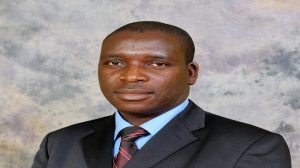

THE Securities and Exchange Commission of Zimbabwe (SecZim) has been pushing for legislative amendments to the SecZim Act which the country’s capital markets regulator says has hampered efforts to attain full membership of the International Organisation of Securities Commissions (IOSCO). IOSCO is an international organisation that brings together the world’s securities regulators and is a global standard-setting body in capital markets. Zimbabwe was accorded associate membership status effective from December last year. Our Companies and Markets Editor Adelaide Moyo (AM) sat down with SecZim acting chief executive Gerald Dzangare (GD) to get insights on this and other matters pertaining to capital markets. Below are excerpts from the interview:
AM: What does IOSCO membership mean for Zimbabwe?
GD: Presently Zimbabwe is an associate member of IOSCO, we need to be a full member. IOSCO is the standard-setting body for capital markets the world over. It’s the regulator of regulators so it regulates 95 percent of capital markets world over. What it means to be a full member is that if you are an associate member there are certain rights that are restricted. If we become a full member it means Zimbabwe is now at the table of setting the global standards for capital markets. Full membership is key in that it attracts international investment. Once you are a member of IOSCO, international investors will know that you comply with international standards on capital markets so you get more investment.

SecZim acting chief executive Gerald Dzangare
AM: What would be the impact of continued delays in joining?
GD: We are competing for global capital. Capital markets world over are trying to get investment. If we do not become a full member in time, investors will go to destinations that are full members. That is why we have been pushing for full membership because we would actually be left behind. Delay also means that in terms of global standards, our standards will go low.
AM: What has been delaying the amendments?
GD: There was discussion as to if SecZim has access to listed companies because the mandate of SecZim is to protect investors on the capital markets. So, part of the investments that people are investing in are equities which are shares listed on the stock exchange. Currently, in our legislation, SecZim does not have access to listed companies. We are unable to fully protect investors because we have to regulate listed companies through the exchanges. For example, if companies that are listed on the Zimbabwe Stock Exchange (ZSE) are going to engage in any malpractice, SecZim cannot go directly to them, it has to take action through ZSE. That delay means that our investor protection is not fully effective. That is why it is important that SecZim has access to listed companies. For you to become a full member of the IOSCO they want you to have access to listed companies because that way you are fully protecting investors. We are SecZim so we should be able to regulate the securities that are traded on the exchanges.
AM: Is our infrastructure positioned to compete with regional markets?
GD: As a country, our capital markets have developed in terms of technology, we have automated trading, we have mobile trading and internet trading. In terms of infrastructure, if you compare us regionally with other SADC exchanges, you will find that ours is very advanced. But it’s the legislation that needs to catch up. That is why we are saying that we need these amendments so that the infrastructure development that is happening in capital markets is also in tandem with the law and we have more investors able to participate.

AM: The government recently put in place measures to deter speculation on the local bourse, which authorities say has been stoking inflation. Do you agree that activity on the bourse has driven inflation?
GD: When a policy is put in place, there are a lot of considerations that would have taken place. Our role as SecZim is to advise the government. So, you will find out that the actions that the government takes, they also take advice from us. Capital markets are for investors and investors are not speculators. You will find that we have genuine investors who actually come to the capital markets to grow their money through investment. But there are those like any other market, rogue elements that come just for speculative purposes. So, because our capital markets are open to everyone, I would not rule out that there have been people who have come particularly for speculative reasons. That is why the number of days for redeeming an investment has been put at 270 days. The investors that we have on capital markets take their investment decisions after absorbing a lot of information. We have investment advisors, stock brokers, and asset managers, professionals, whose job is to help the investor navigate the capital markets. The investor will not take an investment decision without getting information. But you have people who think that the stock market is for speculative reasons.
AM: Pursuant to these changes, some regulatory responsibility was given to exchanges. What effect will this have on the markets?
GD: SecZim is actually responsible for regulating stock markets but as the Commission, we can actually delegate that responsibility. What we did is we actually gave the exchanges power to be able to monitor what is happening in the bank accounts of stock brokers. The reason we did that is because they are trading on a platform of the exchanges. The impact has been the intended goal of the whole policy which was to remove those who were carrying out malpractices using the stock market.
AM: What is the update on the suspension of OM and PPC?
GD: There are interesting developments that are taking place there and it’s unfortunate that I can’t say it because it’s something that is right in the thick of being resolved. But definitely, there is a resolution that is coming.

AM: Where are we with the regularisation of virtual assets?
GD: We are working on the framework at the moment. There is a team that is meeting to finalise that and then our recommendations for amendments will go through.
AM: SecZim has been widening investor education initiatives, tell us about that?
GD: Our mandate as SecZim is investor protection. One of our concerns is the lack of financial literacy in the country. We want to improve on that. There are initiatives that we are putting in place and one of them is partnering with journalists to be able to equip them in terms of capital markets so that when they disseminate information, it comes from that level. In terms of the general public, we are going to be having… investment education campaigns where we are going to be telling people about capital markets and products available. You are going to be seeing a lot of that activity in the third and fourth quarters. If you improve financial literacy then we also improve financial inclusion. We will have more people participating in the capital markets. We have mobile trading, the C-trade, the ZSE direct, and internet presence for all exchanges and the Commission as well. What we want to do is to be able to get more activity on that. Once there is financial inclusion improvement, where the average person can invest in the Zimbabwean stock markets, we believe that the understanding of capital markets will improve. Our target is to get financial information out there to the public.
AM: Some analysts have said the innovation we have seen lately within the local capital market is miss-timed, as the market is too volatile for any reasonable pricing of derivative products. What is your response to this?
GD: That is ill-advised. The market dynamics change all the time. The time for investments is always right at that moment… I don’t know what it is that they (people) are waiting to happen but if you look at all markets around the globe, there are issues that are happening. If you look at inflation, it’s going up even in the developed world. Every capital market has got its issues and the investor knows that it’s about risk and return. There is no risk-free market. The companies listed on the stock markets are still functioning, making profits and paying dividends. It means the capital markets are functioning properly because a market is supposed to be buyers and sellers. If you find that the buyers and sellers can come to a market to trade, that market is ripe for investment. The government intervention did not stop the market from trading, which means that the investor has taken that policy intervention and has factored that into their investment.
The timing for me is always right to invest, that’s why we encourage investors to use our experts, asset managers, and stock brokers. Those who are trained will tell you that it’s right to invest all the time.

AM: On derivatives, some market watchers have also said the market is one-sided and lacks market-makers. What is your take on this?
GD: I think that’s a harsh conclusion. This is something that has just recently come in, we need to give it time to develop and grow. Those market watchers need to look at the growth curve of derivative markets. It’s not an overnight thing. The infrastructure is there and the market follows in infrastructure. The government is putting the policies necessary, market players have put in infrastructure and the traders are going to come. For now, it’s early days to judge.
AM: Bankers have said debt listing requirements on the Victoria Falls Stock Exchange (VFEX) are too stringent, what is your view?
GD: Those people have not consulted SecZim or the VFEX. It actually comes as a surprise to us. We would be grateful if they tell us those stringent conditions because as far as we are concerned the legislation put in place makes VFEX very competitive internationally in terms of rules for debt instruments.
AM: What is SecZim’s outlook for the remainder of the year?
GD: For the capital markets we are very bullish. There have been policy interventions that have taken place but we know that our market is dynamic and it’s a market that actually is able to adapt to the balances between the national needs and investor needs. We see market capitalisation going up. In VFEX we are going to be seeing more listings in terms of companies and debt instruments. On the ZSE we anticipate market activity to continue.